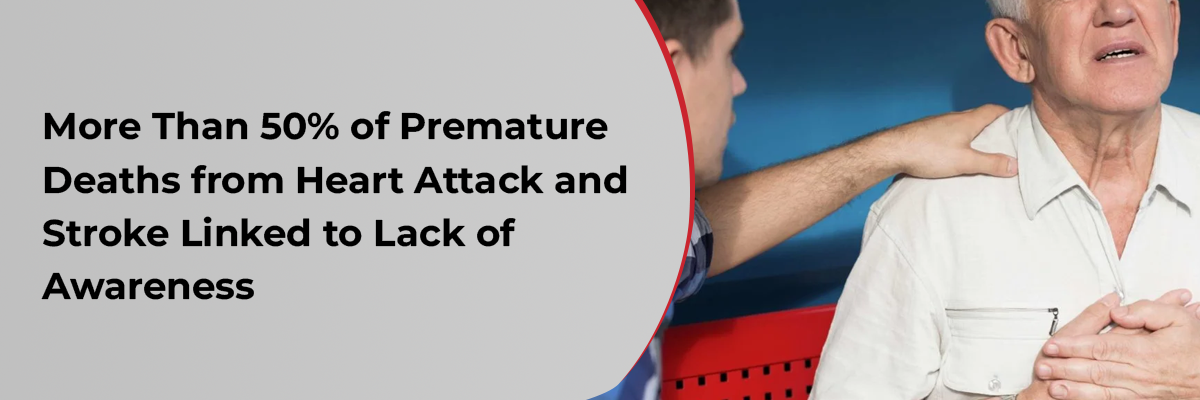
 IJCP Editorial Team
IJCP Editorial Team
More Than 50% of Premature Deaths from Heart Attack and Stroke Linked to Lack of Awareness
A recent study conducted by doctors from the All India Institute of Medical Sciences (AIIMS) and published in a journal by the Lancet group has uncovered concerning findings regarding the impact of symptom awareness on premature deaths. The study revealed that a lack of awareness about the symptoms of heart attacks and brain strokes led to the untimely demise of 55% of patients within the age range of 30 to 69 years.
Tragically, the majority of these deaths occurred in the comfort of patients' homes, emphasizing the critical need for heightened awareness and prompt action. Shockingly, only one out of ten patients managed to reach an appropriate healthcare facility during the crucial "first golden period," which is the optimal time for receiving treatment after the onset of symptoms for these life-threatening conditions.
The study also highlighted two significant factors contributing to delays in seeking treatment: the inability to recognize the severity of the illness and financial constraints faced by patients. Overcoming these barriers is crucial to ensuring timely access to care for acute cardiac and stroke patients.
The three-delays model was used to assess the delay in seeking correct treatment among those who died of cardiac/stroke emergencies. The findings revealed that out of 435 recorded deaths, 38.4% of cases experienced level 1 delay. This delay was attributed to factors such as the lack of symptom recognition pertaining to heart attacks or brain strokes, consultations with nearby practitioners, and financial constraints. Additionally, approximately 20% of deaths were associated with level 2 delay, which encompassed delays in accessing suitable healthcare facilities, arranging transportation, and facing affordability issues. Level 3 delay, accounting for 10.8% of cases, was primarily caused by financial constraints, unavailability of specialists, or a scarcity of ICU beds within the healthcare facility. The remaining cases did not report any delays.
These revelations underscore the urgent necessity for widespread education and awareness initiatives targeting the general public, healthcare professionals, and caregivers alike. Enhancing symptom recognition and addressing financial obstacles can potentially save numerous lives by enabling timely interventions and appropriate medical attention.

IJCP Editorial Team
Comprising seasoned professionals and experts from the medical field, the IJCP editorial team is dedicated to delivering timely and accurate content and thriving to provide attention-grabbing information for the readers. What sets them apart are their diverse expertise, spanning academia, research, and clinical practice, and their dedication to upholding the highest standards of quality and integrity. With a wealth of experience and a commitment to excellence, the IJCP editorial team strives to provide valuable perspectives, the latest trends, and in-depth analyses across various medical domains, all in a way that keeps you interested and engaged.









.jpg)








.jpg)

Please login to comment on this article